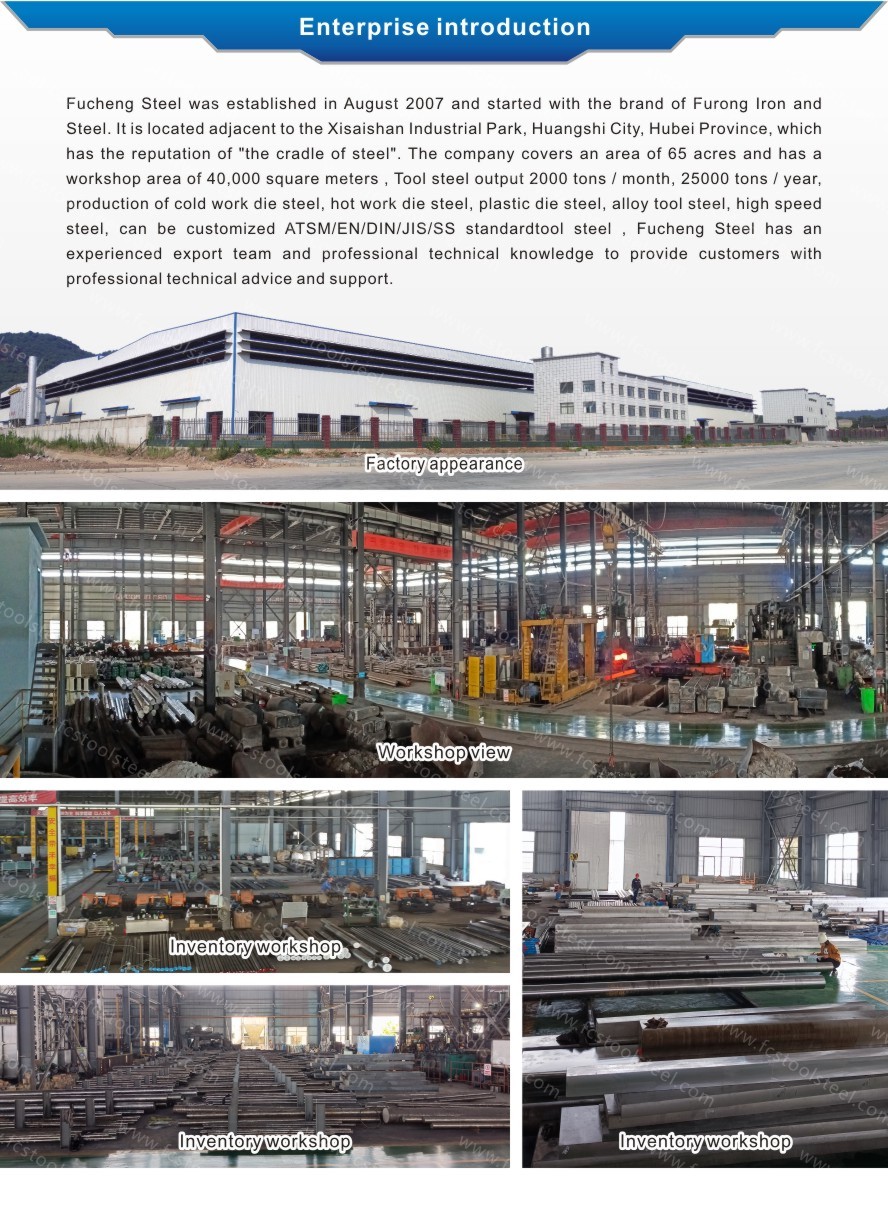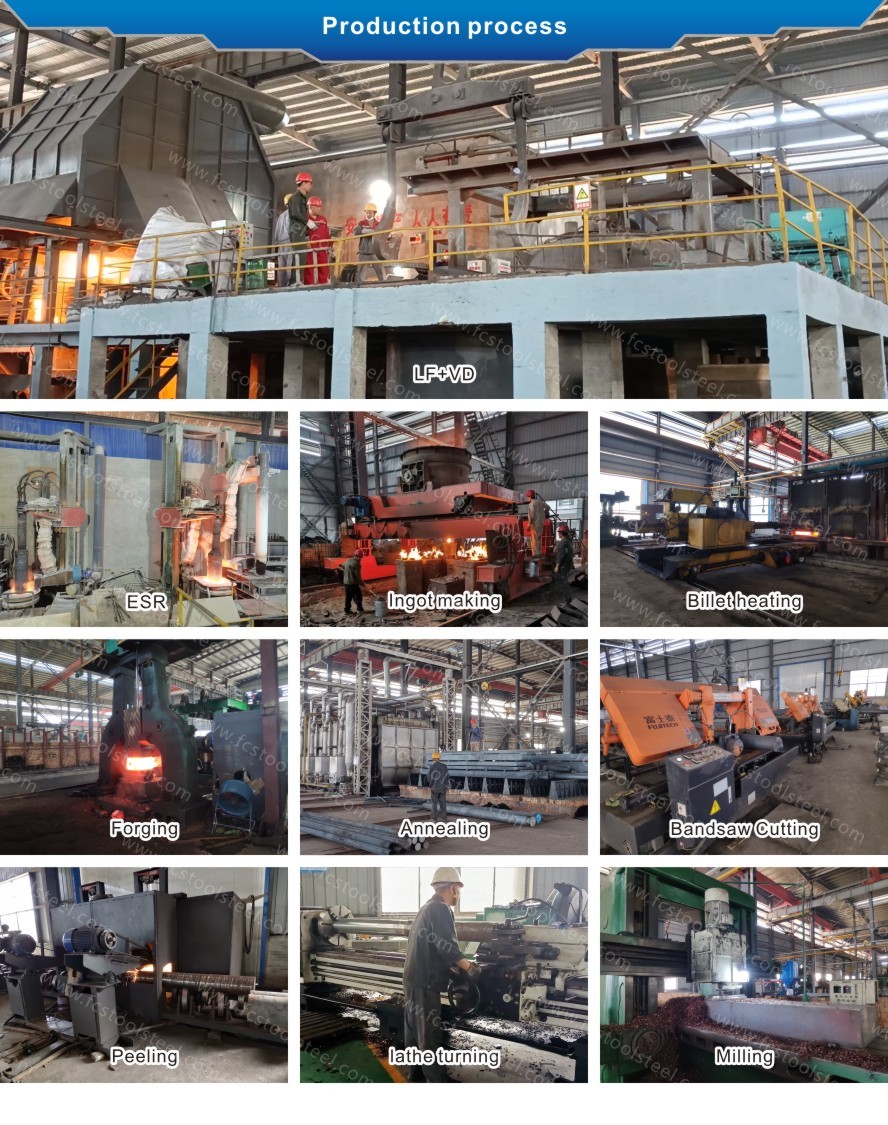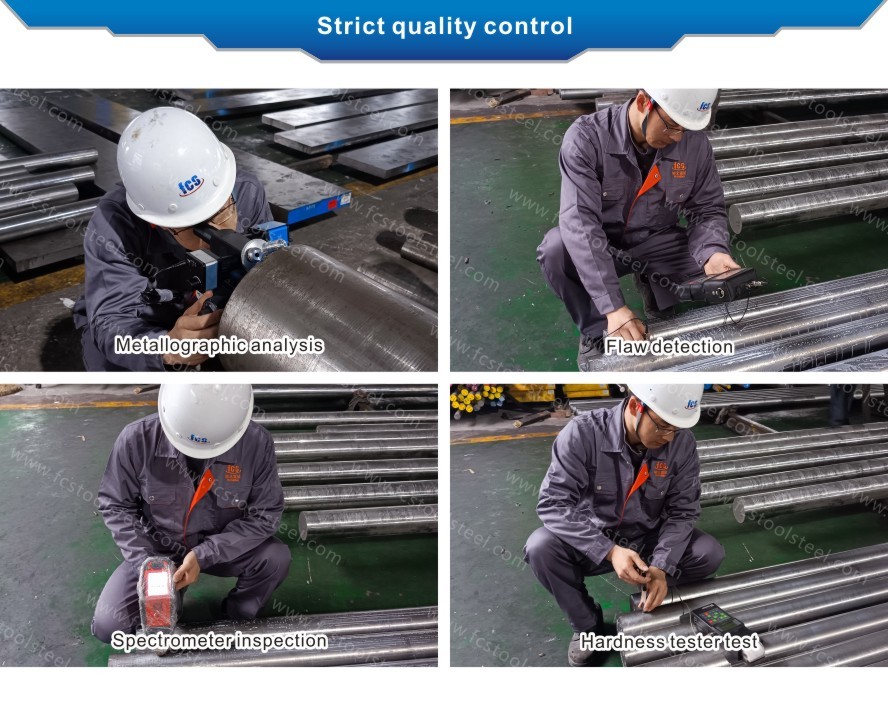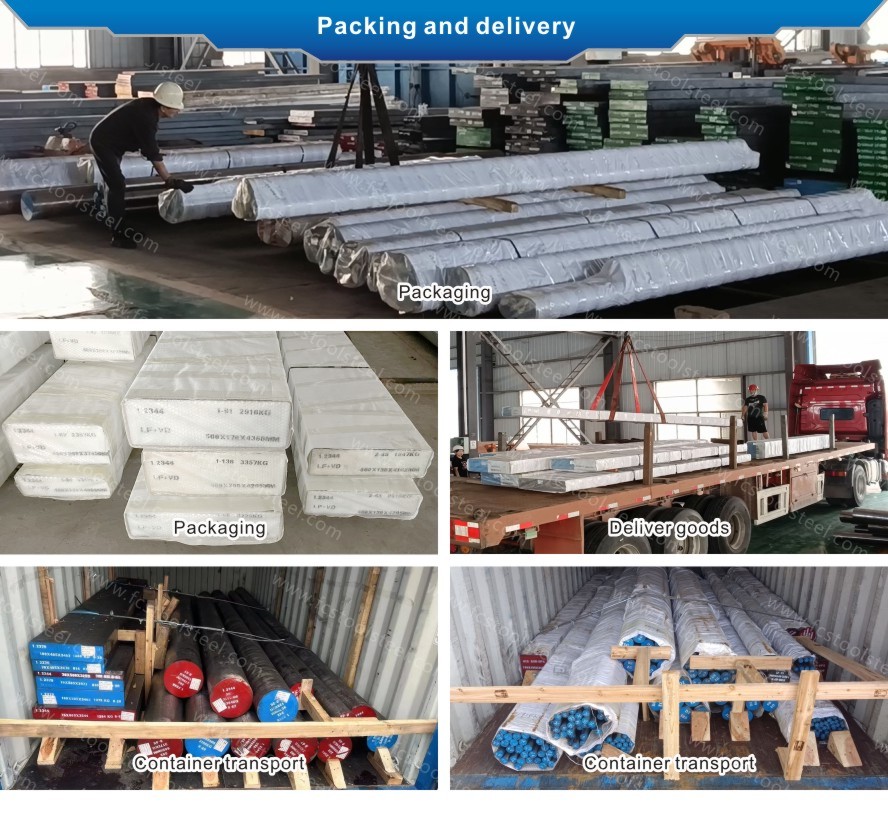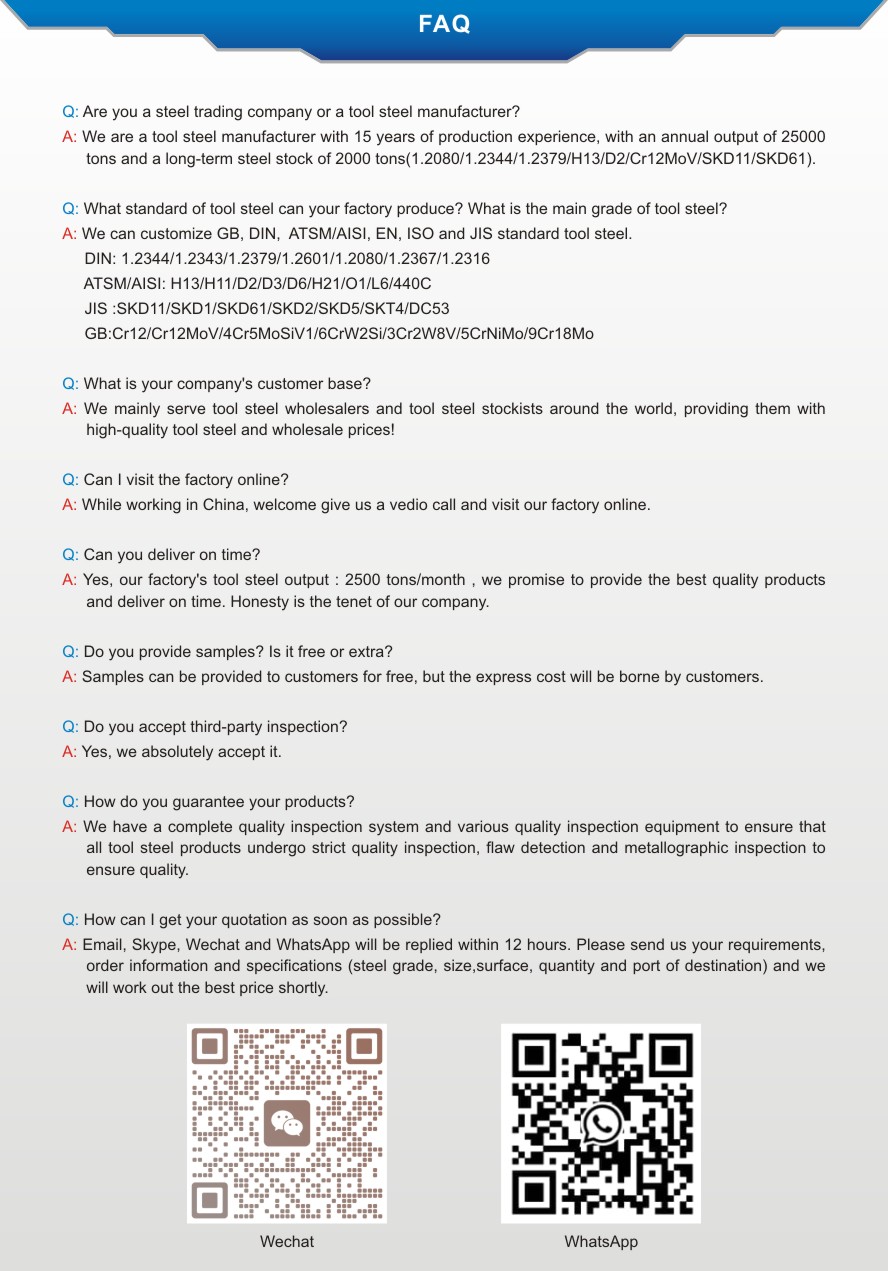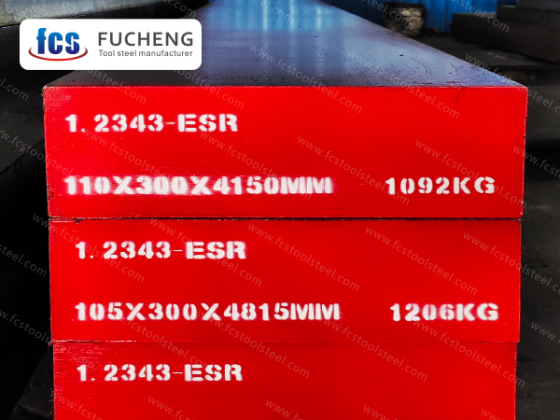
- Home
- >
- Products
- >
- FCS 1.2345 steel
- >
FCS 1.2345 steel
1.2345 steel, as a material for die-casting molds, is suitable for manufacturing high-temperature components of aluminum/magnesium alloys and can extend the life of zinc/copper alloy die-casting molds through surface strengthening processes. In the field of hot processing, its high temperature stability supports the long-term use of titanium alloy extrusion molds and automotive forging hot forging dies. In the application of plastic molds, 1.2345 steel has the ability to withstand high temperature engineering plastic injection molding and optical grade surface treatment, while exhibiting better wear resistance than traditional materials in precision stamping and powder metallurgy fields.
- FUCHENG STEEL
- China
- 1 Month
- 2000 Tons/Month
- Information
1.2345 TOOL STEEL
| Brand | FCS |
| Smelting and Manufacture Method: | LF+VD+Forged |
| Delivery Condition: | Annealed |
| Delivery hardness: | ≤229 HBS |
| UT Test Standard: | Sep 1921-84 Class3 D/d,E/e |
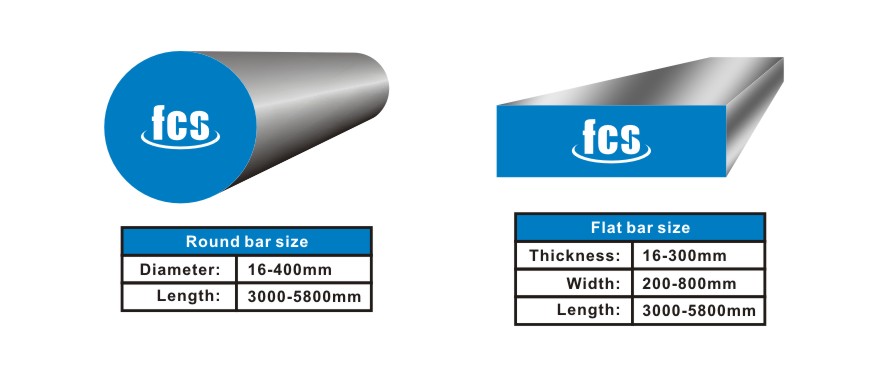
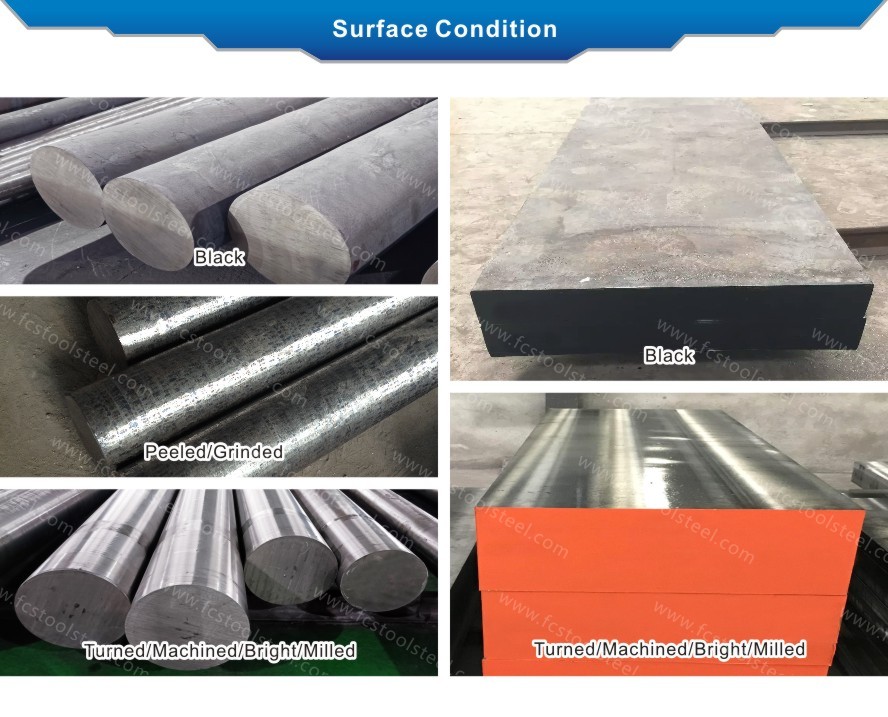
1.2345 STEEL GRADE COMPARISON AND CHEMICAL COMPOSITION COMPARISON
| Standard/Steel Grade | Chemical Composition(%) | ||||||
| C | Si | Mn | Cr | Mo | V | ||
| DIN/W-Nr. | 1.2345 | 0.48~0.53 | 0.80~1.10 | 0.20~0.40 | 4.80~5.20 | 1.25~1.45 | 0.80~1.00 |
APPLICATION
1.2345 steel exhibits wide applicability in multiple industrial fields. As a material for die-casting molds, it is suitable for manufacturing high-temperature components of aluminum/magnesium alloys and can extend the life of zinc/copper alloy die-casting molds through surface strengthening processes. In the field of hot work, its high temperature stability supports the long-term service of titanium alloy extrusion molds and automotive forging hot forging dies. In the application of plastic molds, it has both high temperature resistant engineering plastic injection molding and optical grade surface treatment capabilities, while exhibiting better wear resistance than conventional materials in the fields of precision punching and powder metallurgy. 1.2345 steel achieves a balance between hardness and toughness through optimized quenching and tempering processes, with high chromium content forming a passivation film to enhance oxidation resistance and corrosion resistance.
1.2345 Steel Characteristics
1.2345 steel exhibits excellent dimensional stability after heat treatment, and after quenching (1020-1050 ℃) and tempering (530-580 ℃) treatment, the deformation rate can be controlled within 0.05%. This characteristic makes it suitable for precision mold manufacturing, especially for injection molds and die-casting molds with strict tolerance requirements for forming cavities.
After nitriding surface treatment, the surface hardness of 1.2345 steel can be increased to HRC60 or higher, while maintaining the toughness balance of the core HRC45-48. This gradient hardness structure can resist the erosion and wear of aluminum liquid, as well as buffer the impact stress during mold operation, significantly reducing the risk of cracking.
The uniformly distributed MC type carbides (such as VC and Mo2C) in the microstructure of 1.2345 steel endow it with excellent high-temperature wear resistance, and it can maintain a stable friction coefficient at 600 ℃. Combined with a linear expansion coefficient of 13.71 × 10 ⁻⁶/K, surface cracking caused by thermal stress can be effectively avoided.
1.2345 steel exhibits isotropy under complex stress states, and the transverse impact energy of forgings after multi-directional forging can reach over 85% of the longitudinal value. This uniform mechanical property makes it suitable for manufacturing deep cavity molds and irregular cooling water channel structures, avoiding early failure caused by anisotropy.
1.2345 steel has excellent polishing and corrosion resistance, and can achieve a mirror effect with Ra ≤ 0.02 μ m through fine polishing after electrical discharge machining. The passivation film formed with 5.5% chromium element can effectively resist the corrosion of acidic gases generated by plastic decomposition, especially suitable for molding molds of corrosive materials such as PC and PMMA.
